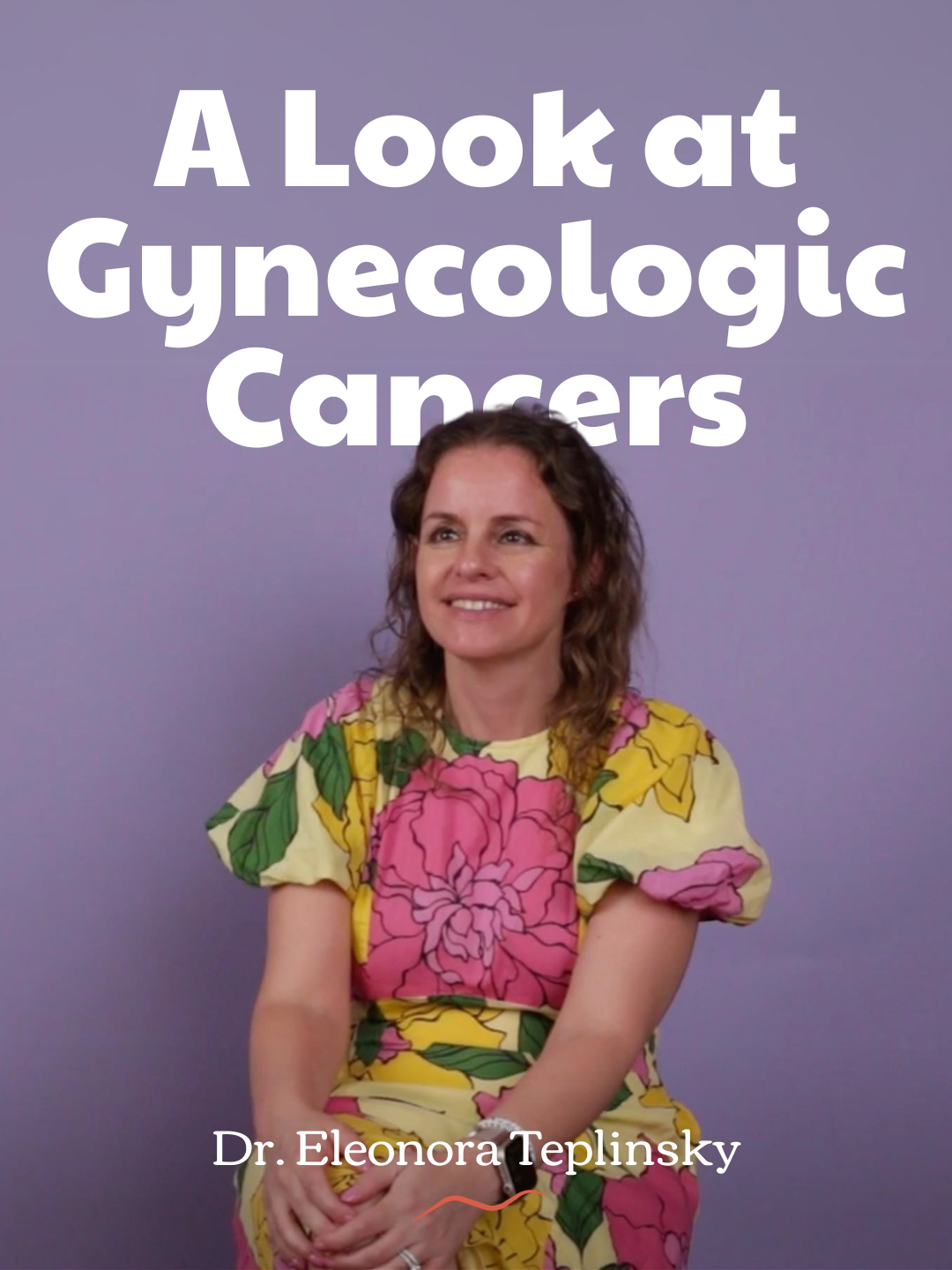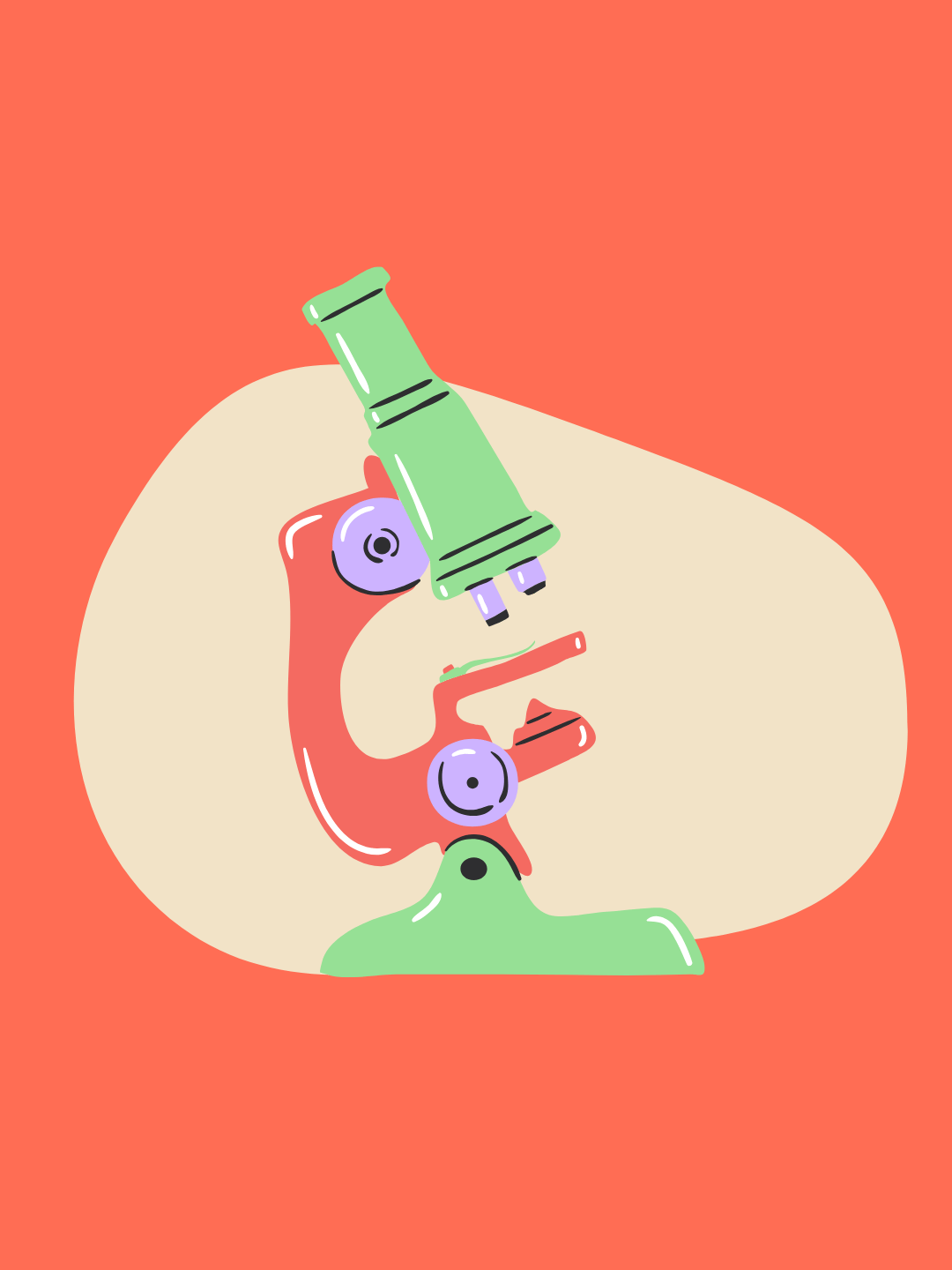Every September, a wave of teal reminds us that it is Gynecologic Cancer Awareness Month.
These cancers, which occur in the reproductive system of people assigned female at birth, are estimated to impact 116,930 people in 2024, according to the American Cancer Society.
To help us understand the diseases that fall into this umbrella, The Peak spoke with Dr. Eleonora Teplinsky, a board-certified medical oncologist specializing in breast and gynecologic cancers and a focus on cancer risk-reduction and healthy living.
When she is not treating patients at Valley Health System in Paramus, NJ, Dr. Teplinsky educates the public about the latest research and matters related to breast and GYN cancers on Instagram and shares patient stories with her podcast, Interlude.
In this Q&A with The Peak, Dr. Teplinsky covers the symptoms of the five main gynecologic cancers and why they can be challenging to identify, why ovarian cancer screening isn’t as simple as it seems, promising research around ovarian cancer risk-reduction, and how you can be your own best advocate.
This interview has been edited for clarity and length.
The Peak: What are the most common gynecologic cancers and what symptoms should folks be aware of?
Dr. Eleonora Teplinsky: The five types of gynecologic cancers are cervical, vulvar, vaginal, uterine, and ovarian. With ovarian, we also talk about fallopian tube cancers and primary peritoneal cancers because they're all kind of treated the same way.
The symptoms [of the different gynecologic cancers] are all a little bit different, but any sort of postmenopausal bleeding [should be evaluated.] If someone has gone through menopause and they're having any bleeding, it must be evaluated. Oftentimes, it can be vaginal dryness that causes some irritation, but any postmenopausal bleeding should always be evaluated, regardless of how much bleeding there is.
With that, if you're having abnormal periods, or you've started to have abnormal periods, or you're having breakthrough bleeding, bleeding after intercourse, anything that starts to seem out of the norm, a lot of times that's not going to be a [significant] finding, but it should still be evaluated.
With ovarian cancer, this is where the symptoms can get very vague because unlike Pap smears for cervical cancer, we don't have good screening tools for ovarian or uterine cancer. A lot of times people don't present with symptoms until the cancer is a little bit more advanced and those can be symptoms of abdominal pain or bloating, early satiety—meaning you feel full after eating just a little bit—changes in your bowel habits, nausea, belching, burping.
As I'm talking, you can realize that all these side effects can be due to so many other things: irritable bowel syndrome, acid reflux, people just told me they've gained weight, menopause, and the list can go on.
Many people are not diagnosed until it's later [in the disease course] because their symptoms have been attributed to something else.
That's why talking about symptom awareness is important because it hopefully will encourage someone to go to their doctor and say, “Here are the symptoms I'm having and I'm concerned about this.”
If you're worried or concerned that it's ovarian cancer, you want to lead with that. You can come in and say, “I'm having bloating, burping, or belly pain, and I'm worried about ovarian cancer, can we order a scan?” or, “Can I try something and if it doesn't get better in two weeks, can I get a scan.” Being direct is really important.
TP: How can a patient learn to be direct and advocate themselves when they feel there could be a power dynamic at play?
ET: There is very much a power dynamic [between physicians and patients] and it's not equal. I wish I had a great solution to that and I don't. But If you are not being heard, if you're afraid to voice your [concerns], know that there are really amazing doctors out there that will listen. Sometimes it's hard. You may not be in an area where you have a lot of options, but push.
Bringing someone with you to your appointments can help a little bit with that power dynamic. You as the patient may be hesitant to advocate for yourself, but if you bring someone with you who can push, that can be very helpful.
TP: You mentioned that screening for ovarian cancer is challenging. Why is that?
ET: For breast cancer, we have mammograms. For cervical cancer, we have pap smears, and colonoscopies for colon cancer. For ovarian cancer, we can do [transvaginal] ultrasounds and CA-125 blood levels, but they're not perfect, meaning there are false positives and there are false negatives, so you can have a positive test and not have cancer, or you have a negative test and you do have cancer.
Researchers haven't been able to develop a technology for ovarian cancer that allows us to find something early. There's a lot of research going into that, which is exciting, but that's why it's really important to know if you're at higher risk for ovarian cancer either through a strong family history or a genetic predisposition, like the BRCA1 or 2 gene variants.
If you're at higher risk, we recommend removing the ovaries and the fallopian tubes [around ages 35 to 40 after someone is done with child bearing]. There's some research going into just removing the fallopian tubes and leaving the ovaries so that someone does not go into menopause, so that's exciting [but we are not there yet for the high-risk population].
If you're not ready to have your ovaries and fallopian tubes removed, then if we know you're at higher risk, we are doing that pelvic ultrasound and CA-125 [blood test], again recognizing their limitations.
A lot comes down to risk. Sadly, people aren't talking about this. If you're not going to your doctor's office and they're not asking you about a comprehensive family history, it sometimes can be missed.
Hopefully this will encourage people to go to their doctor and say, “Can we look at my family history comprehensively? What am I at risk for?”
If you have a family history, ask to see a genetic counselor. With ovarian cancer, if you have any first degree relatives with ovarian cancer, you qualify for genetic testing.
TP: Can you talk a little bit more about the research around the relationship between the fallopian tubes and ovarian cancer?
It’s really exciting. We know that a lot of ovarian cancers actually originate in the fimbriated ends of the fallopian tubes. [The idea is] if we can remove the fallopian tubes and leave the ovaries,ovarian function is preserved and we don’t have the long term consequences of premature menopause but we have reduced the risk for ovarian cancer. There's a lot of research going into it but it's still in clinical trials, so we don't recommend doing that outside of a clinical trial.
Along with that, there's a term called opportunistic salpingectomy, which is for patients who are not at high risk for ovarian cancer or are at average risk. If you're done having children and are having some other abdominal or pelvic surgery, you can ask to get your fallopian tubes removed. You're still going to keep all your hormonal function with the ovaries, but you can reduce your risk for ovarian cancer.
TP: Can someone still have a child with IVF after the removal of the fallopian tubes?
ET: Yes, you can have a child via IVF because the ovaries are still intact.
TP: We know that treating cancers is just one part of cancer care. What are some of the common side effects of GYN cancer treatment and how can Breasties take action to address those to center their quality of life?
ET: The side effects of GYN cancer treatment in part depend on what treatment someone received. Sexual health is often impacted from GYN cancer treatments especially for patients who have been put into premature menopause or who have had pelvic radiation.
Patients may experience fatigue, gastrointestinal issues, skin changes, bladder and urinary problems, lymphedema, neuropathy, mental health concerns and menopausal symptoms, among others.
Ask your doctor about what side effects you can expect in the short-term and long-term. Ask about resources and referrals to address some of these side effects such as referral to a pelvic floor therapist, lymphedema specialist or a mental health professional. There are complementary therapies such as acupuncture that can help also. Engaging and connecting with a community of survivors and thrivers can be extremely helpful as well.







